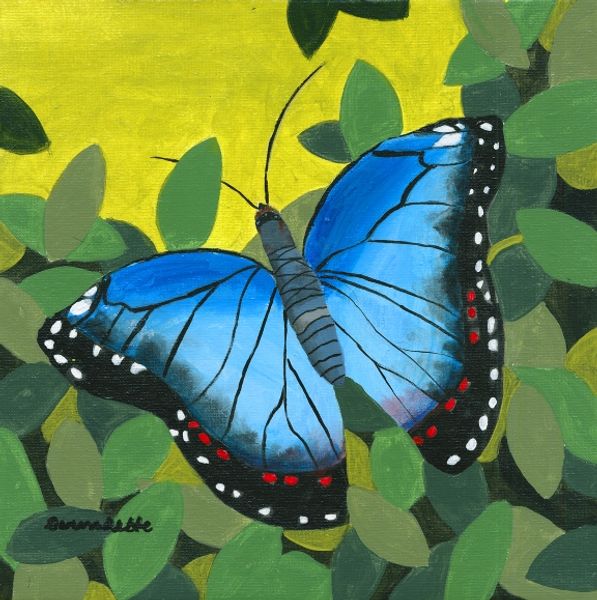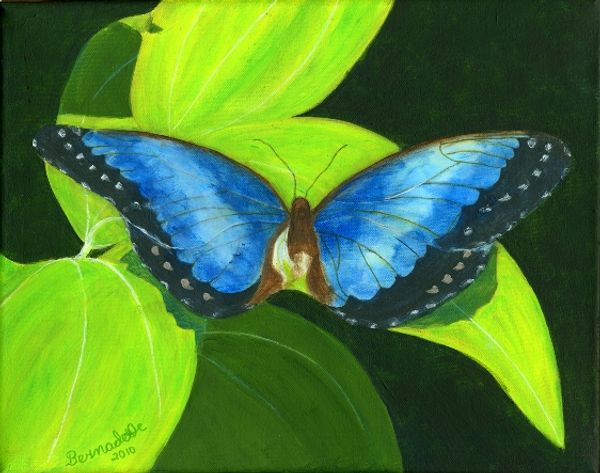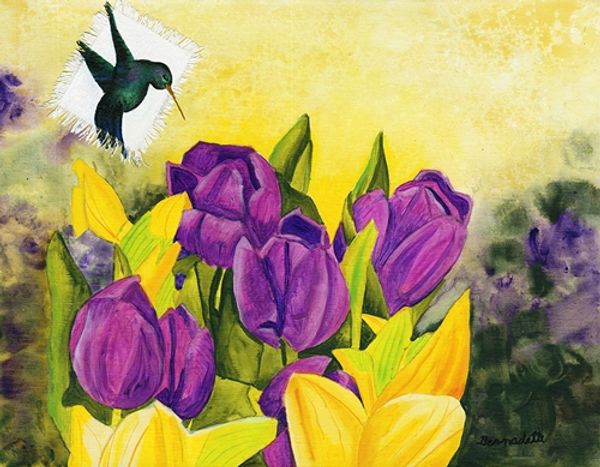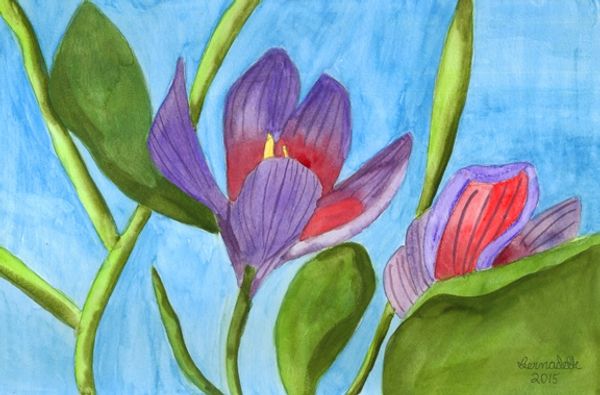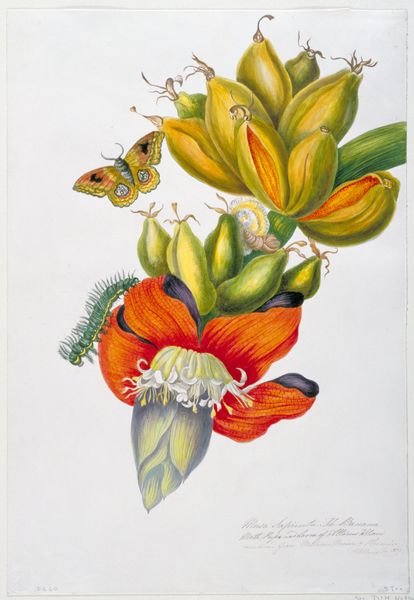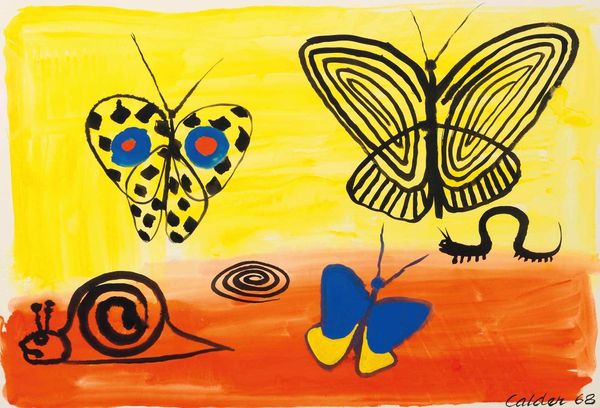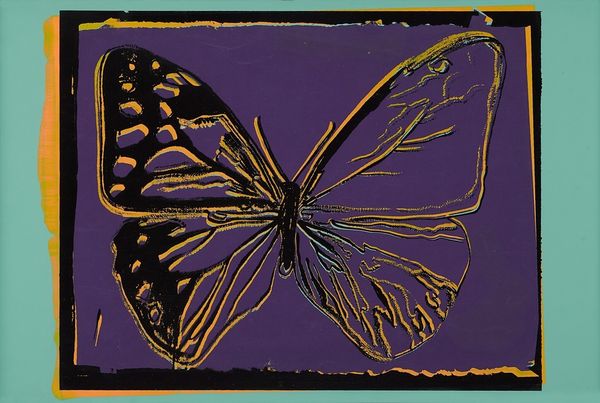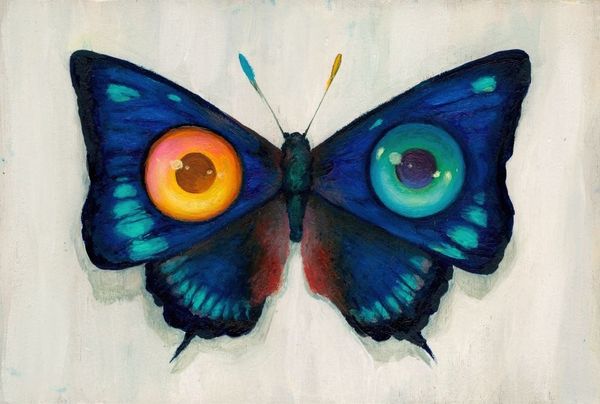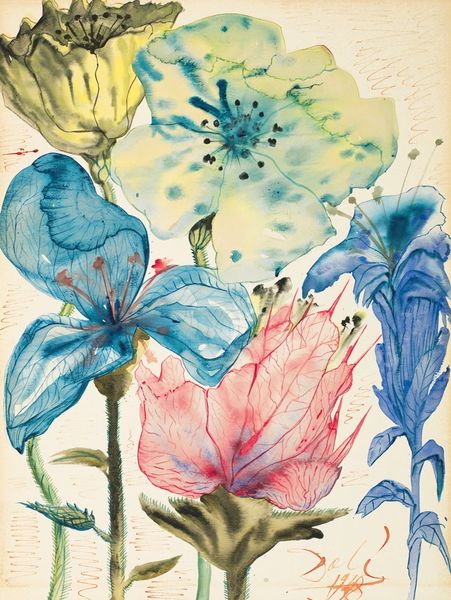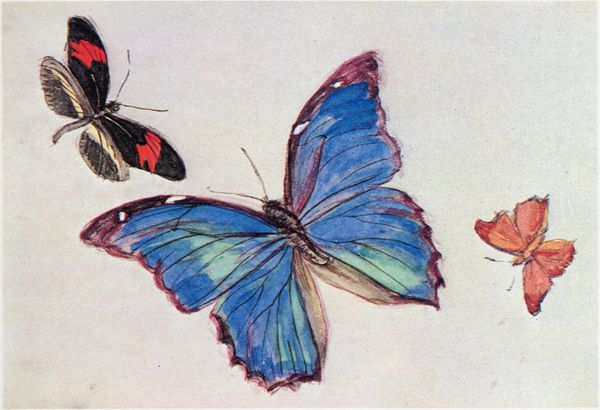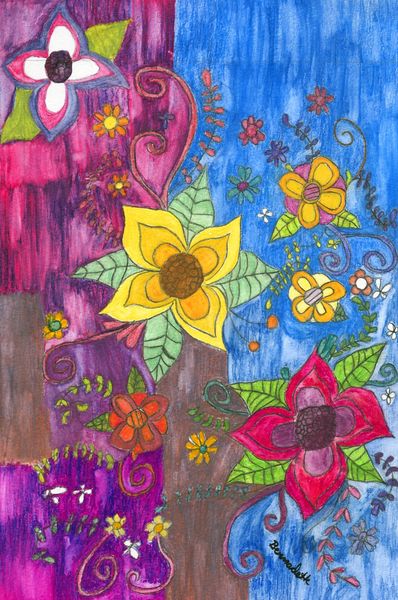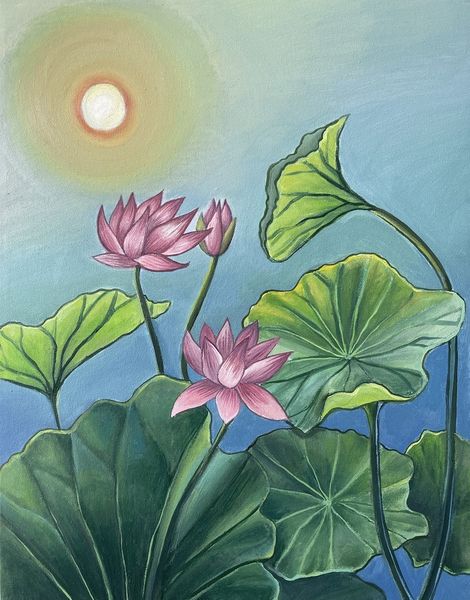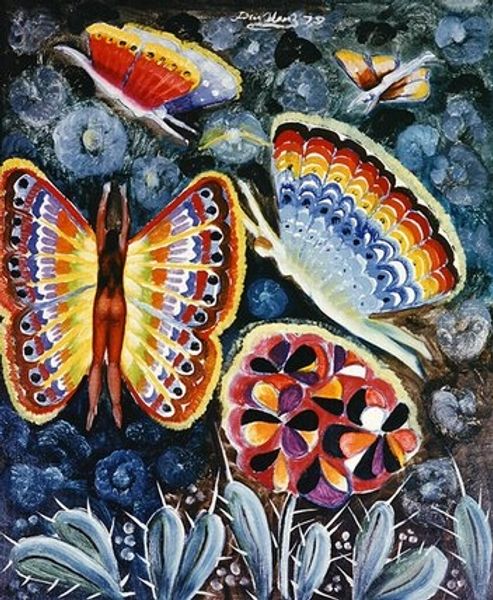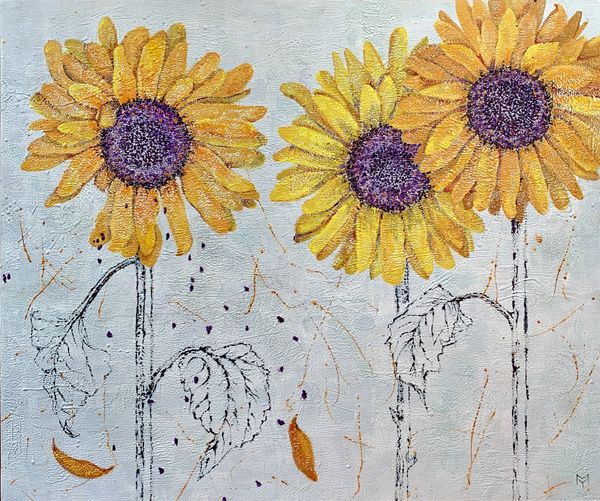
Copyright: Bernadette Resha,Fair Use
Editor: Here we have Bernadette Resha's "Flutter," an acrylic painting from 2017, showing two butterflies among foliage. There’s something quite joyful about its bright colors and the thick application of paint. What do you see in this piece, and how do you approach it? Curator: It's interesting to consider how this seemingly simple image might be read through a post-colonial lens. The butterfly, often a symbol of transformation and beauty in Western art, takes on different meanings when viewed in the context of global environmental concerns and the exploitation of natural resources. How might we connect this intimate depiction of nature to larger narratives of ecological injustice and the disruption of indigenous ecosystems? Editor: That's a compelling perspective. I hadn’t considered the ecological implications. Do you think the artist consciously intended to evoke these themes? Curator: Perhaps not directly. But art doesn't exist in a vacuum. The artist’s hand, however unconsciously, reflects the societal and environmental realities surrounding its creation. Think about the environmental impact of paint production itself! Furthermore, who benefits from this aesthetic experience? Does it offer solace or complacency in the face of ecological crises? What do the butterflies symbolize here? Freedom, or something more complex? Editor: So, by looking at the broader context, we can reveal hidden layers of meaning, even in something as seemingly innocent as a butterfly painting. I'm struck by the idea of aesthetic experience as potentially linked to deeper, often uncomfortable, realities. Curator: Precisely! Art can function as both a mirror and a window – reflecting our world and offering perspectives we might not otherwise consider. Analyzing through different theoretical frameworks enriches our appreciation of the artwork. Editor: I see how looking at "Flutter" through this critical lens changes the way I understand not only the painting, but also the very act of observing art. Thanks! Curator: My pleasure. Always question, always connect.
Comments
No comments
Be the first to comment and join the conversation on the ultimate creative platform.
